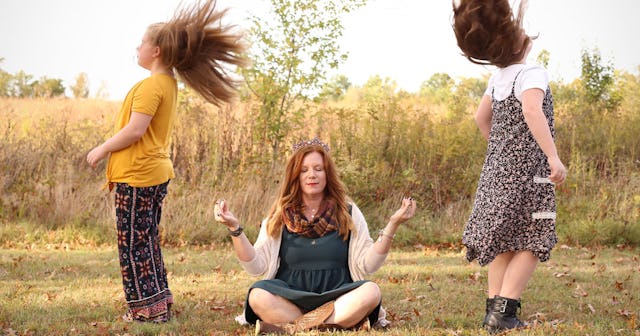I'm Not Fine And Neither Are You

Trauma maybe the most relative term in the English language. And funny enough, “trauma” is spelled the same in English, Spanish, German and Italian. However, I bet if we asked 100 people what trauma means to them, we would get 100 different answers.
I define trauma as anything that stains my soul. Maybe that is gibberish to you, but it makes perfect sense to me. You don’t have to understand my trauma for it to be trauma. You may even think my trauma is no big deal. That does not negate the fact that it is trauma to me.
In my not-quite-40 years on this earth, I’ve lost my father, my brother, all of my grandparents, twin babies, and my nephew. Throughout my almost 18+ year career as a social worker, I’ve witnessed, heard and carried the stories of victims of violent crimes, sexual assault, child abuse and neglect. (This is not a trauma resume – just bear with me). My soul has been stained by all. Some stains I was able to accept, process and move forward in a healthy way. Others – not so much.
I was 14 when my father died. That trauma instantly changed me and how I view the world. I was on path with a few pebbles and dips along the way, then out of nowhere the trauma tornado came and whirled me into a different direction with a hailstorm pouring down. At times, I was bitter and angry. I cut myself off from people who were close to me to hide this new girl full of rage and hurt. “Why me” ran through my mind every time I saw my friends with their dads. What did I do to deserve this? Why did I have to suffer this pain? The loss for this girl made me question everything to the core of what I had come to believe as my life, so far.
After becoming a therapist and a mother, my brother died of a drug overdose. Again, my core was shaken and my direction changed. Again, I had a new lens to see the world and had to find another way to forge down the path where new obstacles lay waiting for me. By this time, I was 30, with a new, even more damaging set of coping skills I pulled from my tool belt to “handle” the pain of losing my first friend.
Though my questions were different after this loss, the theme of blame remained the same. Why couldn’t I save him? Why didn’t I do more? However, as a good people-pleasing-caretaker, I sealed up all that blame, pain and sadness so I could be fine and attempt to continue down my familiar path. The problem was my life-lenses acted as beer goggles, and I found myself fumbling and falling where I once floated.
Courtesy of Stephanie Medley
What I have learned through all these experiences is the single worst thing I can do is be “fine.” When I am in pain and I am experiencing loss, I am far from fine. When I don’t give my experience and the stain it left on me the dignity of a name, and rather say “I’m fine,” my stain spreads. The original impact of the trauma is much worse if I can’t call out the fact I am hurting and I have been affected by what happened.
I’m not suggesting you have a full-on therapy session with the next person who asks how you are, but instead of leading with “I’m fine,” chose something else. Literally anything else, because being “fine” is not living.
Life has not been promised without pain. We do not get to skip through Candyland shooting rainbows out of our ass while riding a unicorn. Though, if we can be honest with ourselves and with those we love and trust, we have the ability to come back from anything and find peace in the most troubling situations.
Human beings are the most wonderfully horrible creatures alive. We love and harm with equal strength. As a social worker, I get to see the best and the worst in our species. I have met some of the toughest humans on this planet who quietly walk among us carrying their stains in humble fashion. I have been honored with knowing their stories and learning from experiences.
With that honor comes some stains of their own. I have held the hand of rape victims bravely telling their truths. I have completed therapeutic exercises to teach children that their abuse is not their fault. I have worn tear-soaked shirts while holding a mother addicted to meth as her child is being taken from her arms. I sat on a hallway floor with a third grader who witnessed multiple murders outside of his front door, zipped-up entirely in his four-sizes-too-big winter coat while we waited for him to feel safe enough to enter the classroom.
I am no saint. I am no hero. I am part of the human race and I chose to work in a field to help my species. While doing so, I have been stained. While helping, I hurt too. I am not fine and that’s okay.
Tell someone you trust you are struggling. Admit when you are in pain. Ask for help when you need it. We can take better care of ourselves by being honest and finding the people we can trust with our stains. Stay mindful of your soul and stay away from being “fine.”
This article was originally published on